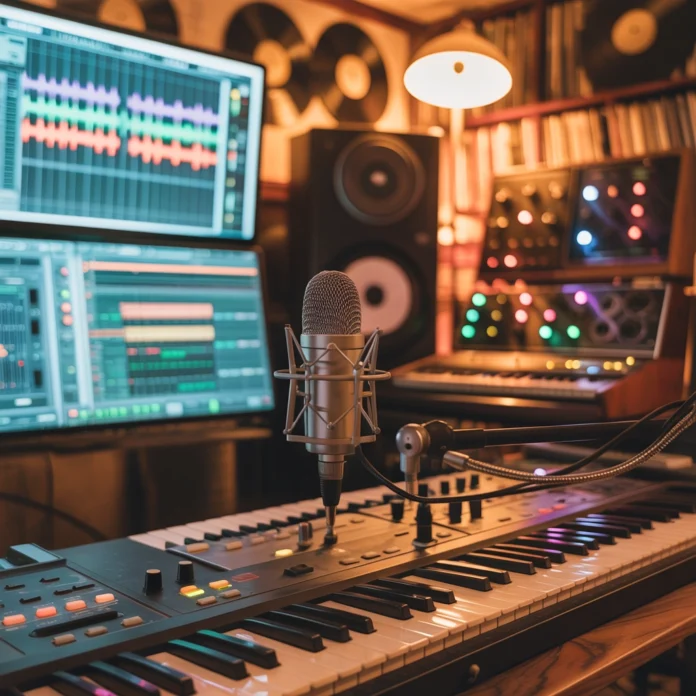Artificial Intelligence (AI) has already made a significant impact on the music industry, from AI-generated songs to AI-powered mixing and mastering tools. But the big question remains: Can AI truly invent a new music genre? Throughout history, new genres have emerged from cultural shifts, technological advancements, and human creativity. Could AI be the next big innovator in music?
How AI is Already Changing Music
AI is no longer just a tool for editing and enhancing music—it’s actively composing and even performing music. Here’s how AI is shaping music creation today:
1. AI-Generated Music
Platforms like AIVA, Soundraw, and Boomy allow users to generate music in various styles with just a few clicks. These AI tools analyze vast amounts of existing music to compose original pieces based on learned patterns.
2. AI-Enhanced Production
AI-powered tools like iZotope Ozone, LANDR, and Magenta Studio help artists mix, master, and enhance their tracks, often suggesting sounds and effects that a human might not have considered.
3. AI-Generated Lyrics & Vocals
AI can also generate lyrics and synthetic vocals, with tools like Synthesizer V, Vocaloid, and Voicify AI creating realistic singing voices.
The Evolution of Music Genres
Historically, new genres have developed from:
- Cultural movements (e.g., Hip-Hop, Jazz, Punk Rock)
- Technological innovations (e.g., Electronic Dance Music, Synthwave)
- Cross-genre experimentation (e.g., K-Pop blending Hip-Hop, Pop, and EDM)
If AI can blend different genres in unexpected ways, could it generate something entirely new?
 How AI Might Invent a New Genre
How AI Might Invent a New Genre
1. Unconventional Genre Blending
AI’s ability to analyze vast musical databases allows it to mix unlikely genres. Imagine a fusion of baroque music and deep house beats, or jazz improvisation over trap drums—AI can generate combinations that haven’t been explored before.
2. Algorithmic Creativity
AI models like Google’s Magenta and OpenAI’s Jukebox can generate entirely new melodies and harmonic structures that don’t conform to traditional musical theory. This could result in a completely new sound aesthetic.
3. Non-Human Rhythmic Patterns
Most human-produced music follows familiar time signatures and structures. AI, however, can break these patterns, generating non-human rhythmic arrangements and unexpected progressions that may lead to new sonic landscapes.
4. AI-Assisted Music Evolution
AI can learn from listener feedback and continuously refine its outputs based on what people find engaging. Over time, this feedback loop could evolve into a distinct, AI-driven genre.
Real-World Examples of AI-Created Sounds
- Dadabots – A neural network that generates endless AI death metal.
- Holly Herndon’s AI ‘Spawn’ – Used AI to create experimental choral compositions.
- Taryn Southern’s AI Album – The first full-length album co-produced with AI.
Challenges & Ethical Considerations
While AI has the potential to create new genres, it also raises ethical and creative concerns:
- Lack of Human Emotion – AI compositions may struggle to capture the depth and storytelling of human-made music.
- Copyright Issues – Who owns AI-generated music? The programmer, the user, or the AI itself?
- Impact on Human Musicians – Will AI replace musicians, or will it serve as a tool to enhance creativity?

Conclusion: The Future of AI in Music Innovation
AI is pushing the boundaries of what’s musically possible, but whether it can truly invent a new genre remains an open question. Instead of replacing human creativity, AI is more likely to act as a co-creator, assisting musicians in discovering new sounds and breaking traditional boundaries.




